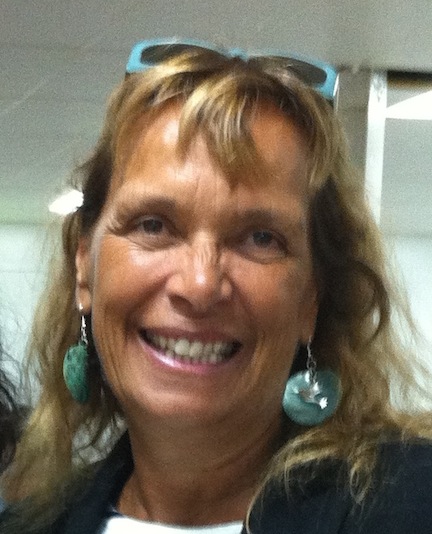In an unusual step, a northern Ontario aboriginal legal services group says it will write Gladue reports for accused indigenous people at the bail stage of criminal proceedings thanks to new funding from Legal Aid Ontario.
Nishnawbe-Aski Legal Services Corporation will pen the Gladue reports, often presented at the sentencing stage of criminal proceedings, early on in the process to reduce the number of accused aboriginal people held in pre-trial custody. The principle gets its name from R v. Gladue, a 1999 Supreme Court of Canada decision.
often presented at the sentencing stage of criminal proceedings, early on in the process to reduce the number of accused aboriginal people held in pre-trial custody. The principle gets its name from R v. Gladue, a 1999 Supreme Court of Canada decision.
“If we can bring Gladue into play at the bail hearing, we can come up with a healing plan for the individual and then that individual, A: gets out of jail and B: gets to start his or her healing journey so that when the time comes to deal with the substantive offence, they’re already down the healing path,” says Celina Reitberger of NALSC.
“If you’ve seen the John Howard [Society of Canada’s] report about the breakdown in the bail system, it is people of poverty who are being penalized,” she adds.
NALSC serves Treaty 9, an area bigger than the size of France with a population of 50,000. But until now, it had no Gladue report writers to help courts understand the specific life circumstances of accused indigenous people who appear before them.
Lawyers often write Gladue reports, but Reitberger says that wasn’t always productive due to lack of trust between counsel and their aboriginal clients.
“Lawyers were given five hours to do Gladue submissions but in our negotiations with Legal Aid Ontario, we said, ‘Well, we find for the most part this is not effective because the aboriginal clients are not going to open up to their lawyers about the troubling aspects of their lives,” she says, adding her organization will give priority to aboriginals when hiring report writers.
Gladue reports — which include recommendations for conviction, such as restorative justice — are submitted to courts due to the disproportionate number of aboriginal people in the criminal justice system.
The funding from LAO will allow NALSC to hire three Gladue report writers in Thunder Bay, Timmins, and Sioux Lookout, Ont. The money going to NALSC is not part of the provincial government’s new $95.7-million funding over three years for increased legal aid eligibility.
For its part, LAO says it’s filling a huge access to justice gap.
“The provision of Gladue reports for aboriginal accused across Ontario in legal aid’s view is a major access to justice issue,” says Nye Thomas, director of general of policy and strategic research at LAO.
Thomas adds the Supreme Court of Canada has said, “not once but twice,” that courts should have Gladue reports when considering sentencing for aboriginal accused individuals.
“In our view, we’re feeling a major access to justice gap for some of Ontario’s most vulnerable criminal accused.”
Nishnawbe-Aski Legal Services Corporation will pen the Gladue reports,
 often presented at the sentencing stage of criminal proceedings, early on in the process to reduce the number of accused aboriginal people held in pre-trial custody. The principle gets its name from R v. Gladue, a 1999 Supreme Court of Canada decision.
often presented at the sentencing stage of criminal proceedings, early on in the process to reduce the number of accused aboriginal people held in pre-trial custody. The principle gets its name from R v. Gladue, a 1999 Supreme Court of Canada decision. “If we can bring Gladue into play at the bail hearing, we can come up with a healing plan for the individual and then that individual, A: gets out of jail and B: gets to start his or her healing journey so that when the time comes to deal with the substantive offence, they’re already down the healing path,” says Celina Reitberger of NALSC.
“If you’ve seen the John Howard [Society of Canada’s] report about the breakdown in the bail system, it is people of poverty who are being penalized,” she adds.
NALSC serves Treaty 9, an area bigger than the size of France with a population of 50,000. But until now, it had no Gladue report writers to help courts understand the specific life circumstances of accused indigenous people who appear before them.
Lawyers often write Gladue reports, but Reitberger says that wasn’t always productive due to lack of trust between counsel and their aboriginal clients.
“Lawyers were given five hours to do Gladue submissions but in our negotiations with Legal Aid Ontario, we said, ‘Well, we find for the most part this is not effective because the aboriginal clients are not going to open up to their lawyers about the troubling aspects of their lives,” she says, adding her organization will give priority to aboriginals when hiring report writers.
Gladue reports — which include recommendations for conviction, such as restorative justice — are submitted to courts due to the disproportionate number of aboriginal people in the criminal justice system.
The funding from LAO will allow NALSC to hire three Gladue report writers in Thunder Bay, Timmins, and Sioux Lookout, Ont. The money going to NALSC is not part of the provincial government’s new $95.7-million funding over three years for increased legal aid eligibility.
For its part, LAO says it’s filling a huge access to justice gap.
“The provision of Gladue reports for aboriginal accused across Ontario in legal aid’s view is a major access to justice issue,” says Nye Thomas, director of general of policy and strategic research at LAO.
Thomas adds the Supreme Court of Canada has said, “not once but twice,” that courts should have Gladue reports when considering sentencing for aboriginal accused individuals.
“In our view, we’re feeling a major access to justice gap for some of Ontario’s most vulnerable criminal accused.”







